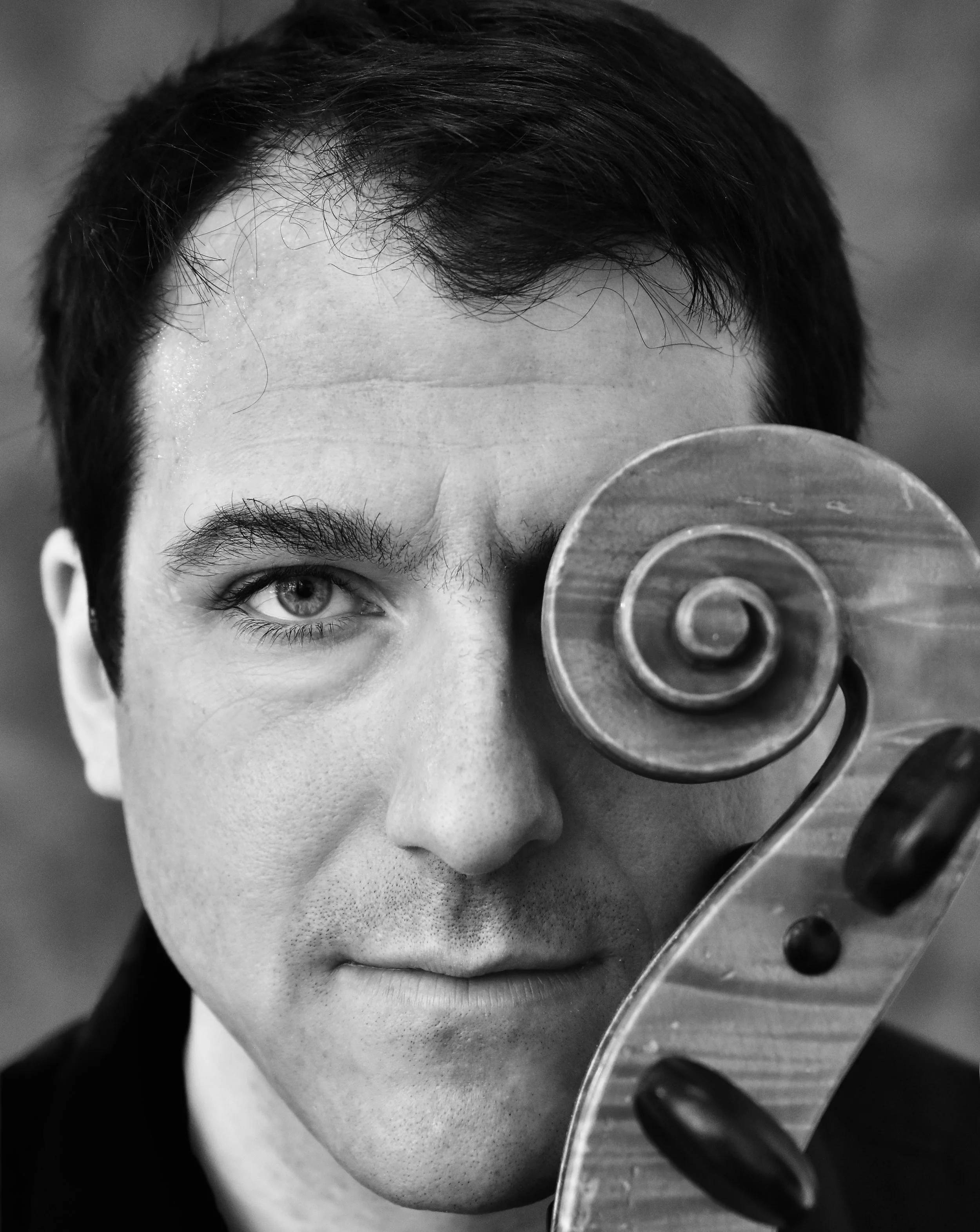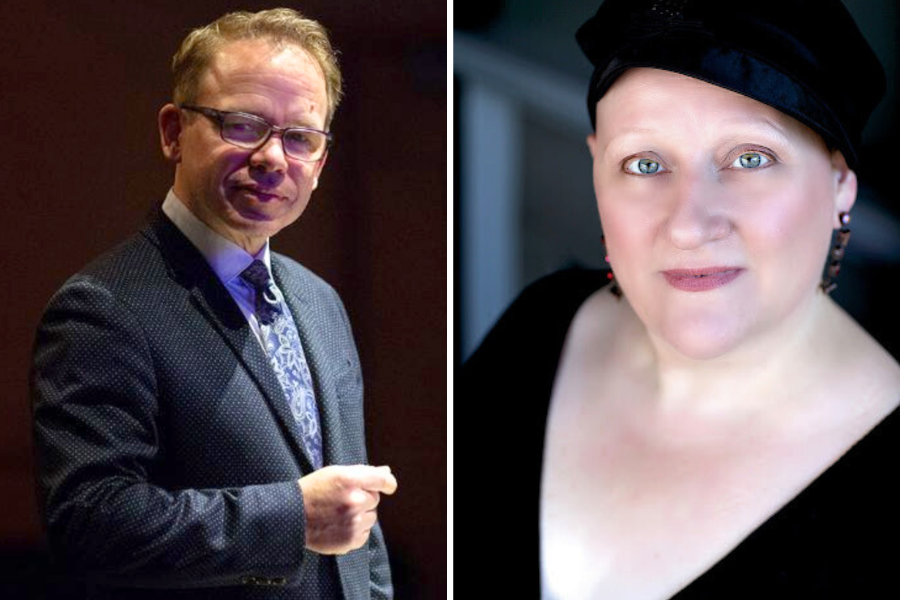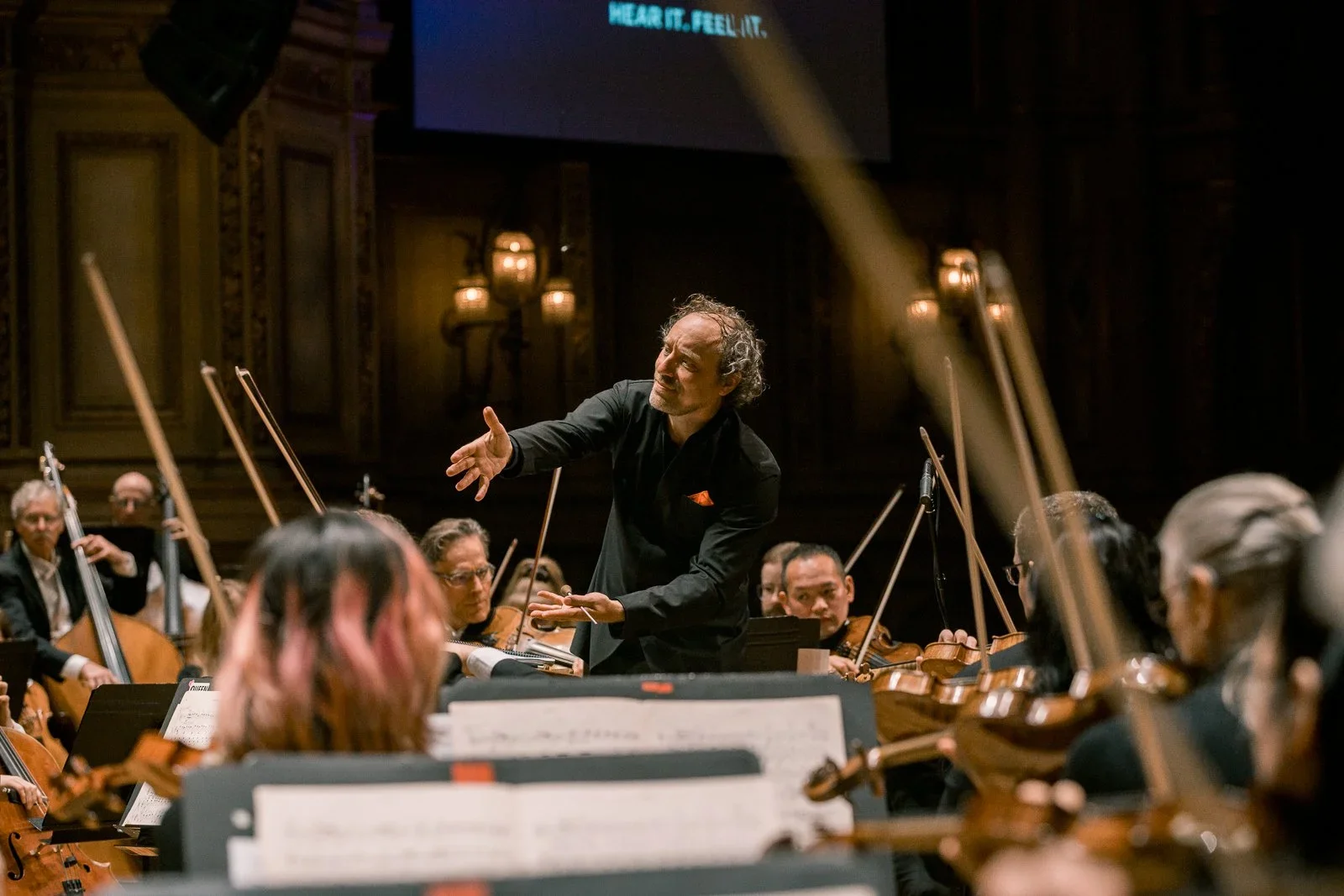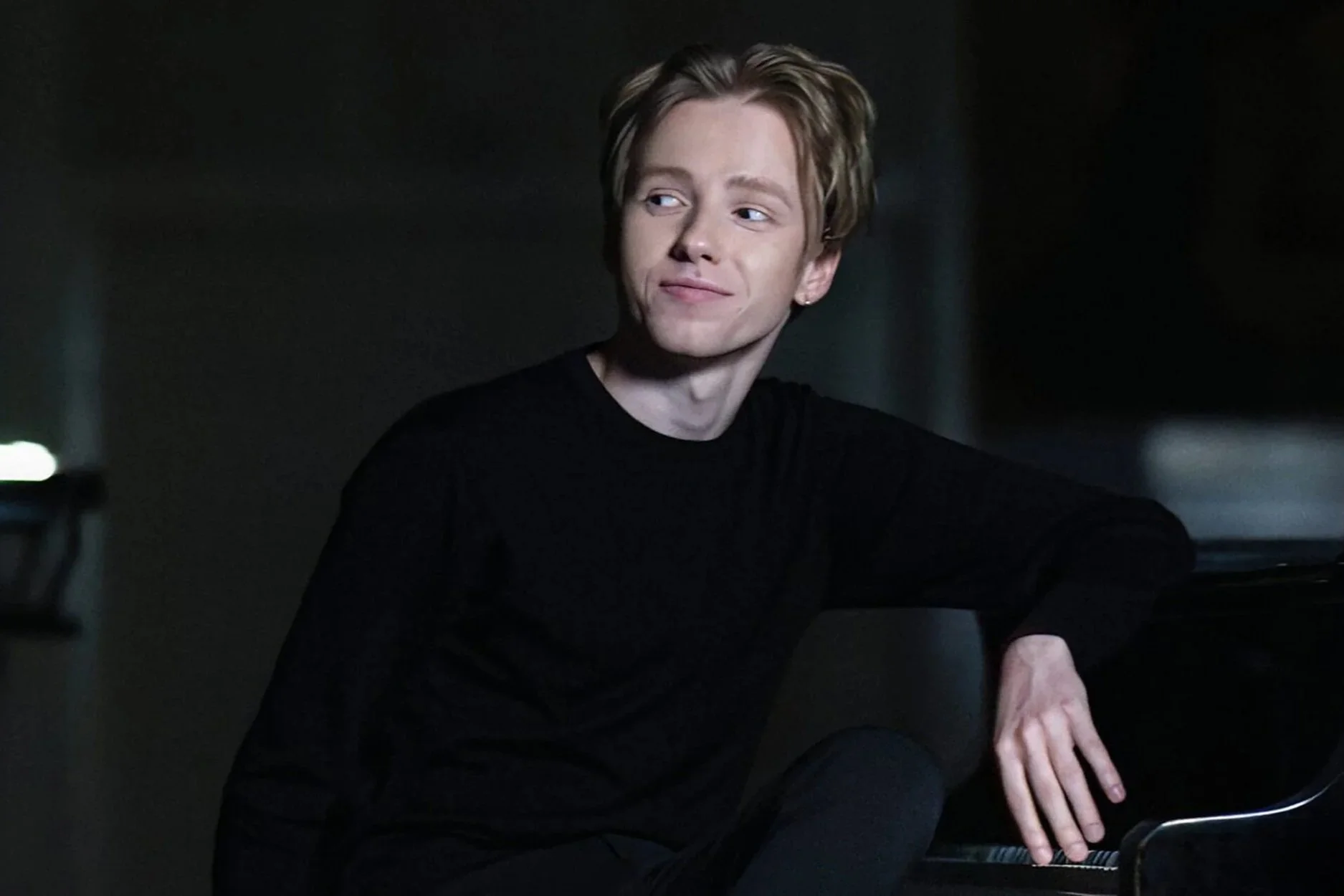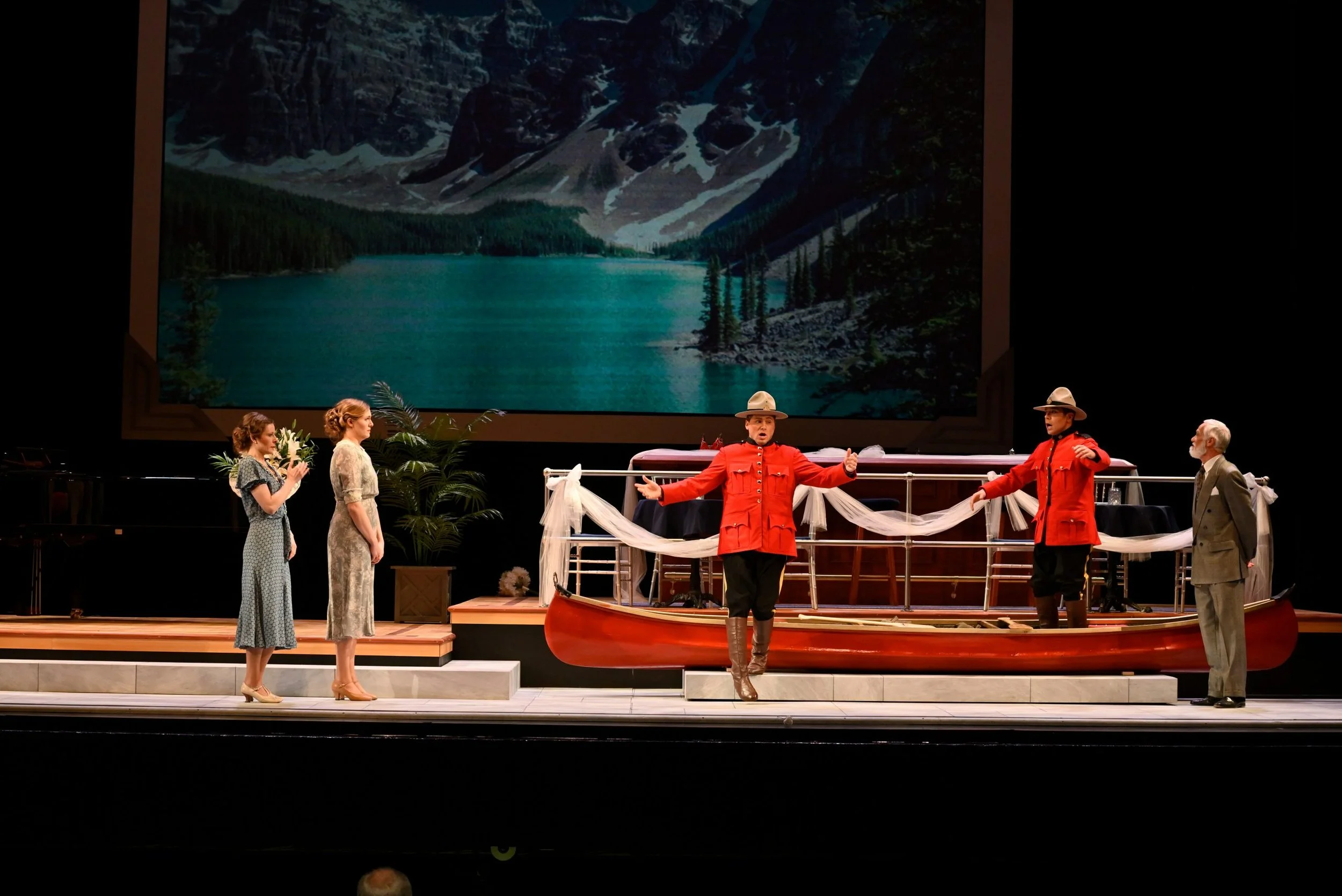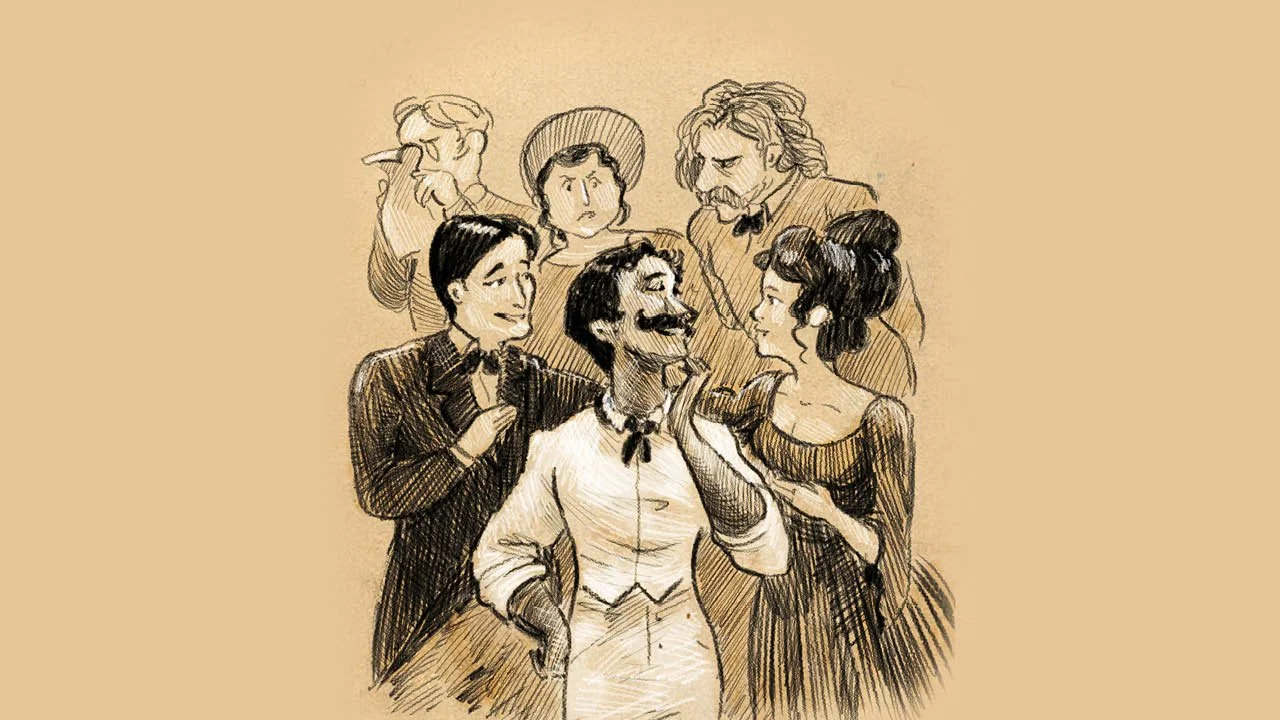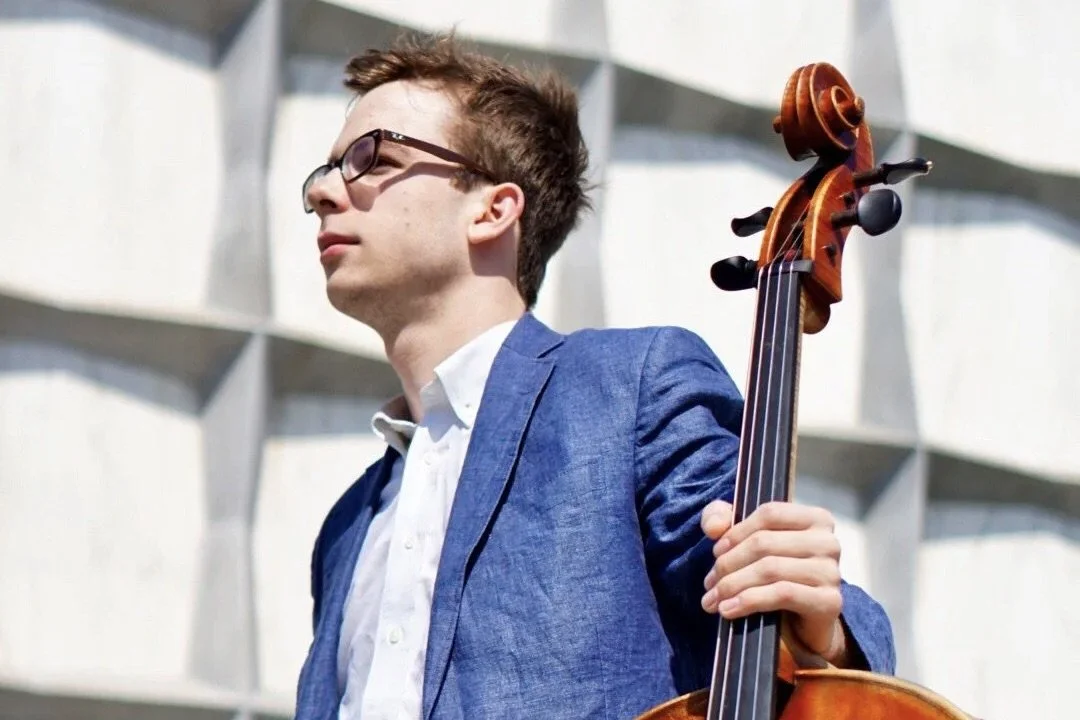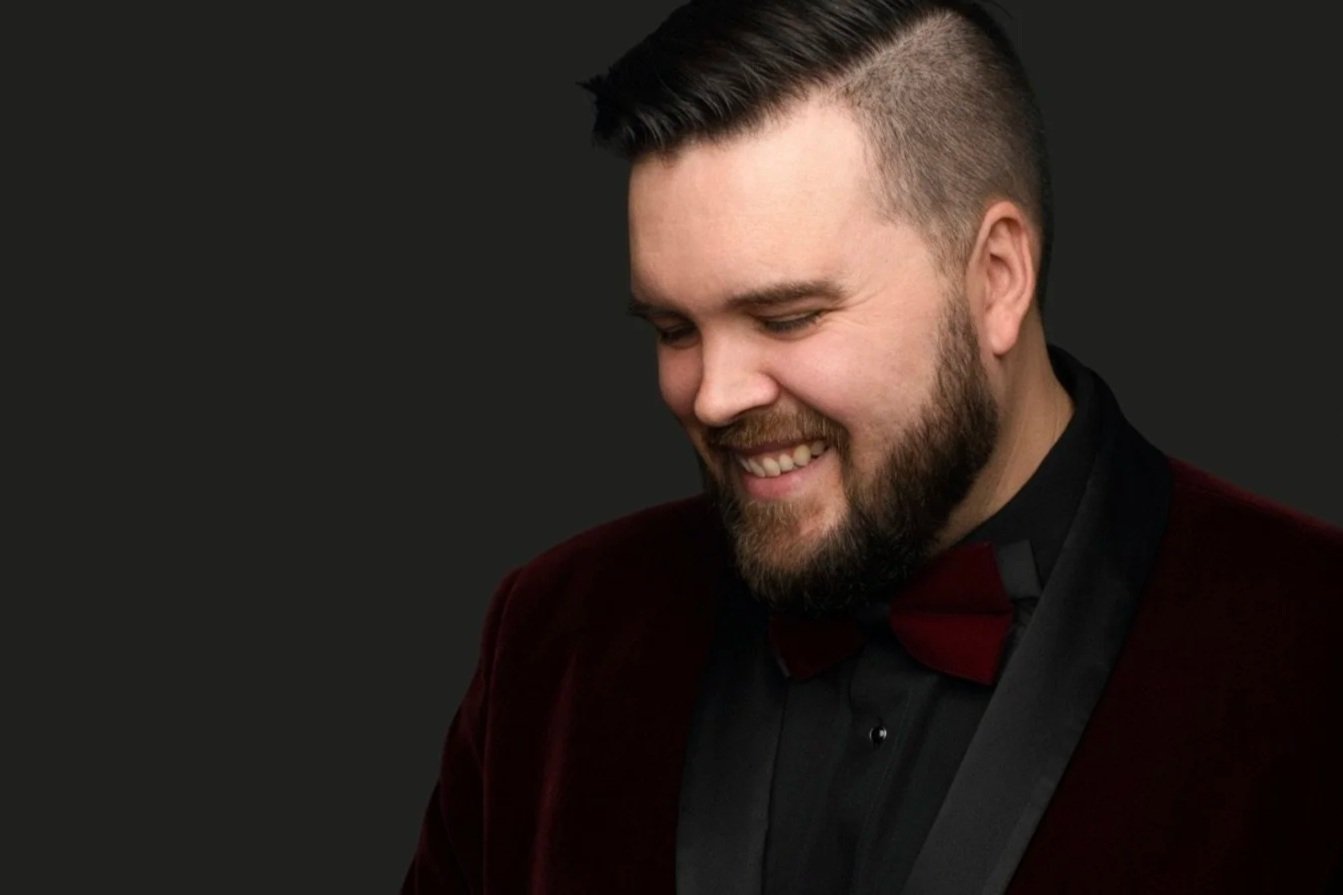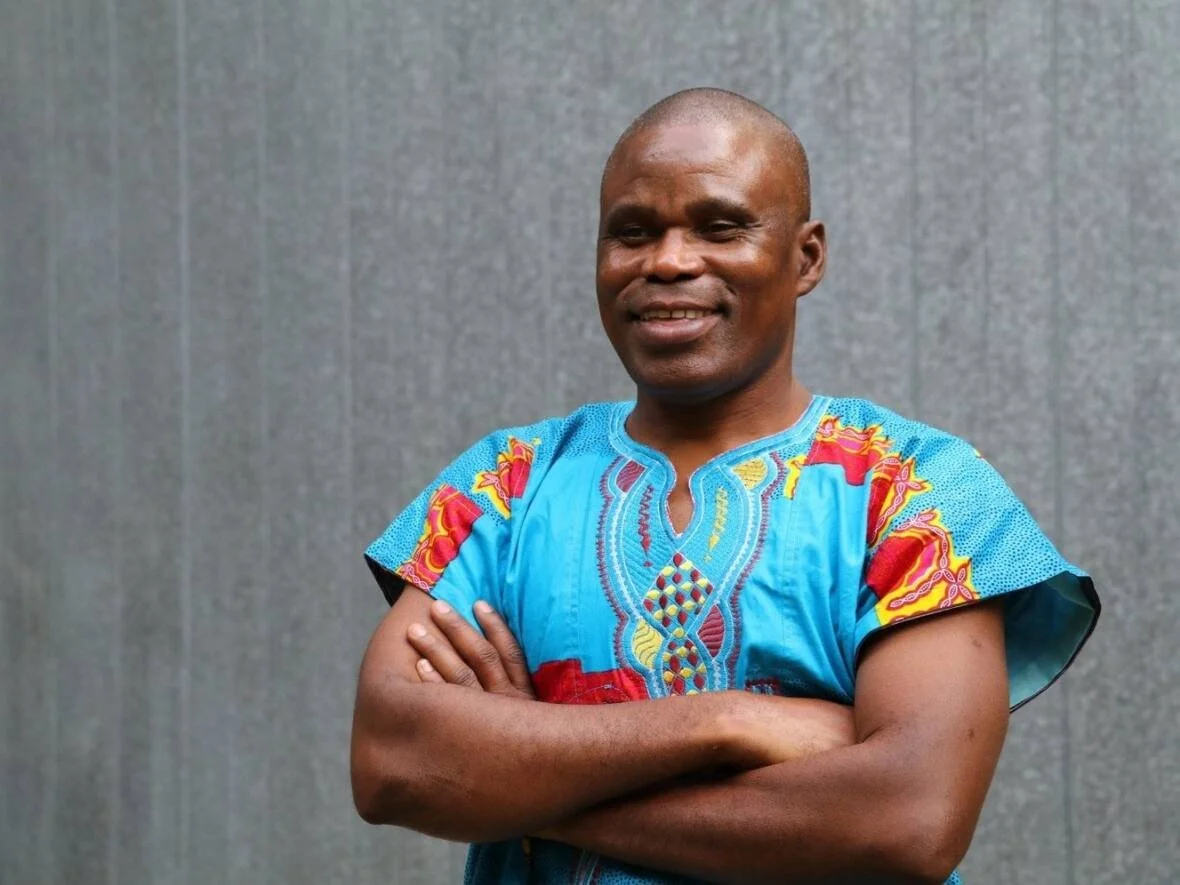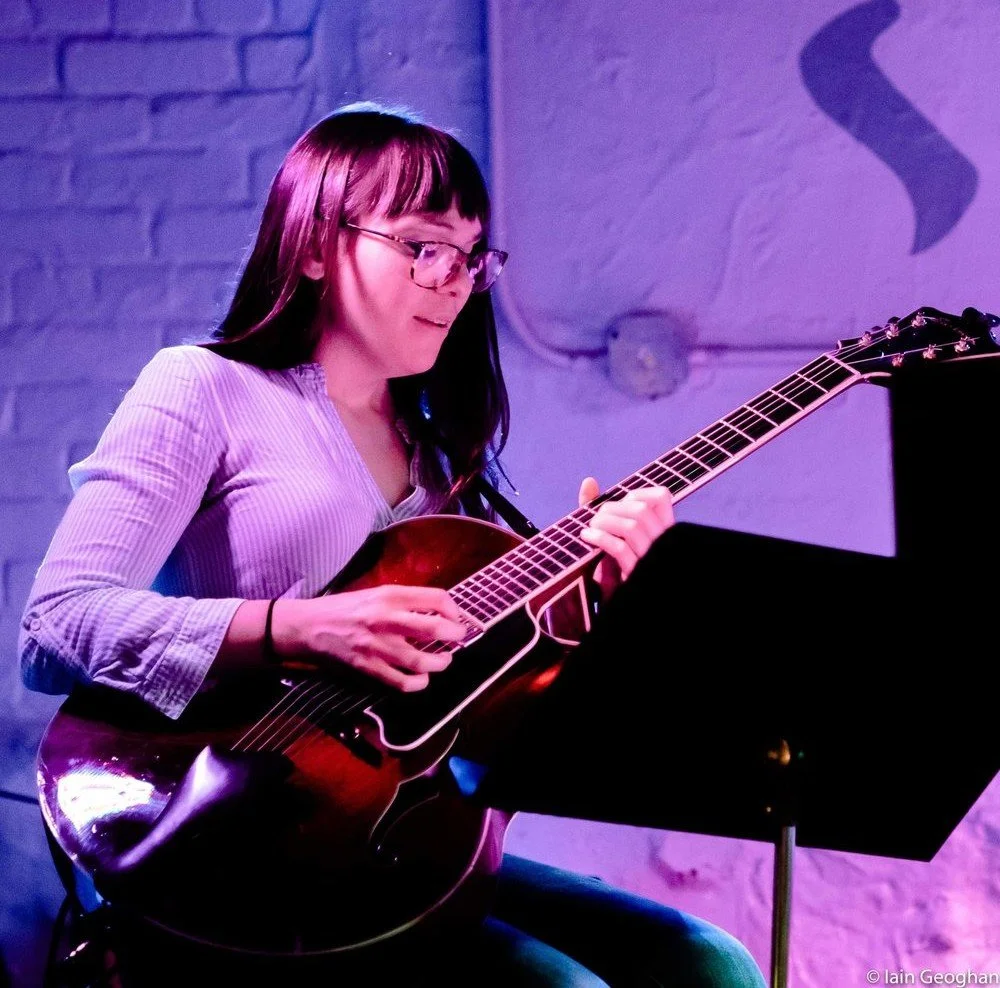Ariel Barnes revisits "transformative journey" of Messiaen’s Quartet for the End of Time, with Vetta Chamber Music
Unique program travels from pain and tumult of tango through to transcendence
Ariel Barnes
Vetta Chamber Music presents Music for Eternity at West Point Grey United Church on March 8 at 2 pm, West Vancouver United Church on March 9 at 7:30 pm, Pyatt Hall on March 10 at 2 pm, and ArtSpring on March 11 at 2:30 pm.
ARIEL BARNES’S ON-STAGE introduction to Olivier Messiaen’s Quartet for the End of Time couldn’t have come at a more auspicious moment, or in a more appropriate place: midnight in Bayreuth, Germany, on December 31, 1999.
It was a more innocent era, in many ways: before the scourge of MAGA, before the plague of Covid-19, before the senseless carnage in Gaza and Ukraine. But that particular moment had its stresses, too, chief among them the fear that a glitch in the matrix would cause all computers to crash as the millennium turned. When the lights in the Stadthalle failed to dim, the audience must have emitted a collective sigh of relief, before settling back into Messiaen’s hymn to music’s enduring grace.
“It’s absolutely a transformative journey,” Barnes says of Quartet for the End of Time, which he’ll soon get to revisit with his Vetta Chamber Music colleagues Joan Blackman, Jane Hayes, and Jose Franch-Ballester.
The cellist adds that this 20th-century classic was written at a particularly fraught time in history, not to mention its composer’s personal life. Messiaen, a medical attendant in the French army, had been captured by Nazi forces in 1940 and was being held in the Stalag VII-A prisoner-of-war camp, just a few kilometres from Bayreuth. With the connivance of a sympathetic German, he and some other musical internees were given access to instruments and manuscript paper, and used the Quartet’s score for their own, private passage of release—if not physically, then at least psychologically.
Although it’s a work that will never lose its relevance, Barnes is cautious in linking its message to specific events in 2024. But what he can say is that it “seems to have a particular, timeless gravitas to it”.
“I don’t know what it is,” he continues, in a telephone interview from Vancouver prior to rehearsing with pianist Hayes, violinist Blackman, and clarinetist Franch-Ballester. “There’s incredibly spiritual and ethereal and eternal subject matter that it deals with, and although it’s serious, well thought out, intellectually stimulating 20th-century art music, it’s also music that touches people that have very little knowledge of our culture. The lay person, or the person who says ‘Hey, I enjoy concerts but I don’t know much about classical music,’ will come to a concert and listen to 50 minutes of relatively esoteric music and be profoundly touched by it. Therefore, of course I think it relates to all the events that are happening in the world today; I think it relates to people in general, continuously, from all walks of life all over the planet.”
Introducing the Vetta concerts will be John Mackey’s Tango for clarinet, violin, cello, and piano, a soulful and technically challenging showcase for this unusual instrumental format, after which Blackman will drop out for Johannes Brahms’s Trio for Clarinet, Cello, and Piano, one of the last works the great German wrote before his death in 1897. As Barnes notes, the program as a whole offers a satisfying arc, from the “pain and tumult” that the tango often represents, through Brahms’s gorgeous love letter to music, and then onto “something completely divine and transcendent”.
It also allows Barnes a chance to explore a different setting than his more customary string-quartet and orchestral showcases.
“When playing with the piano, the cello serves as a really strong binding element between the left-hand piano voice and the rest of the voices in the ensemble, regardless of the instrumentation,” he muses. “There seems to be some kind of a relationship with the left hand of the piano, and that seems to be the primary partner, so to speak. And when it comes to the supporting role that the instrument plays, the cello often bounces back and forth between that and a more principal melodic role. In this particular program, for example, in the Messiaen the cello pays virtually every function. One could even say that it provides a stratospheric, colour-like harmonic function in relationship to the violin, in particular. And a principal melodic role at times, at very significant moments in the piece.
“If you move on to the Brahms trio, you have an entirely different function,” Barnes continues. “You have a principally melodic function, or a dual function with the clarinet. It’s almost like a love affair throughout the entire piece between the two instruments. And in the Mackey? Whew! I mean, we all kind fo play similar roles in the Mackey.”
It’s clear that the Nuremberg-based Barnes is treating this return to his native Vancouver as anything but a vacation. For instance, in discussing the Brahms trio, he goes into great detail about whether to approach the music with a pure sound, the better to illuminate the strength of the writing, or to “warm the instrument up with lots of vibrato”, which might be more historically appropriate.
“It’s a question that stays with me all the time,” the cellist says, “and that I’m constantly considering.”
The Quartet for the End of Time poses an especially daunting challenge: in the work’s fifth movement, “Louange à l’Éternité de Jésus”, the cello is asked to stand in for the voice of God. Barnes concedes that he’s not going to try to be the Charlton Heston of the cello: “There’s no megalomania here,” he quips. But he notes that he’s found it helpful to remember that this section of the Quartet is adapted from an earlier work written for ondes Martenot, a kind of proto-synthesizer with a distinctly eerie and very vocal sound.
“When one listens to the original composition. written for the original instrument, it takes on an entirely different colour,” he explains. “It’s extremely ethereal, or it’s disembodied. And it’s really kind of what you might imagine the aurora borealis feeling like, when you can see the lights pulsating and moving and twisting in the atmosphere. That offers me a completely different perspective from which to approach that movement.
“I’m non-religious, but at various times in my life I have been very moved by spiritual ideas that exist through the lens of religion, or in a religious context,” he continues. “And I think Messiaen rises above the confines of his specific dogma, if you will….He’s really speaking to a broader spiritual awareness, but through the only lens that he can, which is his own, being a devout Catholic. So I’m working to be a conduit for that.
“I think we all kind of stare at the stars and wonder,” Barnes adds, “so I’m just trying to access that feeling.”
![]()


